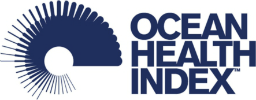The Puget Sound Institute and the Puget Sound Partnership co-hosted a panel earlier this month to discuss the Ocean Health Index (OHI) and its relevance to Puget Sound. The April 2nd panel was held at the Center for Urban Waters in Tacoma, and featured OHI project lead Ben Halpern of UC Santa Barbara.
 The OHI is a relatively new framework that uses a complex set of metrics to score the health of the world’s oceans from 0 to 100. The score is based on ten factors ranging from food provision (fisheries and mariculture) to carbon storage, tourism, clean waters, biodiversity and even “sense of place.” View all ten factors here. It calls these “human goals, which represent the key ecological, social and economic benefits that a healthy ocean provides.”
The OHI is a relatively new framework that uses a complex set of metrics to score the health of the world’s oceans from 0 to 100. The score is based on ten factors ranging from food provision (fisheries and mariculture) to carbon storage, tourism, clean waters, biodiversity and even “sense of place.” View all ten factors here. It calls these “human goals, which represent the key ecological, social and economic benefits that a healthy ocean provides.”
The panel discussion included Halpern, Phil Levin of NOAA Fisheries and Ray Hilborn, a leading OHI critic based at the University of Washington School of Aquatic and Fishery Sciences. Hilborn wrote a critique of the OHI’s food provision metric in the March 28th issue of the journal Nature (See: Is the ocean food provision index biased?). Halpern has written a response to the critique, which will appear in an upcoming issue.
Much of the panel discussion centered around the OHI itself, but Halpern says a question for the future will be how the OHI scales to the much smaller Puget Sound ecosystem. The OHI is also concerned primarily with marine waters, whereas management efforts by the Puget Sound Partnership, which has also developed a system of ecosystem health indicators, have focused on the entire watershed and the unique estuarine nature of Puget Sound. Halpern and his group say they hope to engage with the Puget Sound Partnership to discuss many of these questions over the course of the next year.